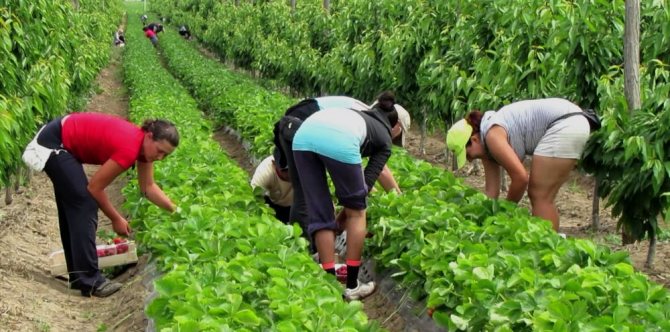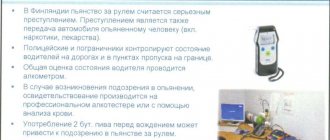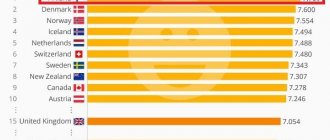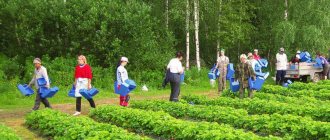Working in Finland is desirable for many Russians and Ukrainians. One of the main problems in Finland today is the aging population. As a result, the country needs professional personnel, especially in blue-collar jobs. As of 2021, the most current vacancies are:
- builders;
- workers of medical institutions;
- social workers;
- farm workers;
- seasonal workers.
Most of them do not require knowledge of the language. In turn, to receive a more attractive offer, CIS citizens must have not only high professional skills, but also knowledge of English, and preferably Finnish and Swedish.
Work visa to Finland for Russians and Ukrainians
Since 1995, Finland has been part of the EU. In practice, this means that citizens from countries outside the European Union must obtain a work visa and/or residence permit to be officially employed in Finland.
List of documents required for obtaining a work visa:
- Two photographs 4.7 by 3.6 centimeters. The maximum limitation period for photos is 6 months.
- Completed visa application. To be filled out exclusively in English.
- A job invitation from an employer from Finland.
- A copy and original of a valid foreign passport. If a visa was previously issued by the Finnish consulate, but the note about it is in the old passport, you must also provide that.
- A copy and original of a civil passport.
All documents must be translated into Finnish or English. They must be submitted no less than 2 weeks before the date of expected entry into the country, but no earlier than 3 months before this day.
A Finnish work visa allows you to work in only one profession. That is, you can change jobs during the validity period of the visa, but only in the same specialty.
To issue a permit, you will need to pay a consular fee of 35 euros.
You can use a regular visa instead of a work visa if:
- You are going to work as a teacher, coach, instructor;
- You are going to work seasonally;
- You are a member of the crew of a ship that calls at one of the ports of Finland.
In this case, the total amount of time spent in the country should not exceed three months.
Residence permit with the right to work
Let us answer the question of how to go to work in Finland.
The Finnish residence permit is a pink plastic document with biometric data and an attached photo. This certificate combines a work visa and a work practice permit. Also, it is marked TTOL and a list of possible specialties.
To receive it, you need to contact the Suomi Embassy and fill out an application on the migration service website.
The following documents will be required for submission:
- international passport;
- copies of internal passport;
- two black and white photographs 36*47;
- medical insurance;
- check for payment of state duty.
A special form must be attached to this list, filled out and certified by the employer. It should specify the term of the employment contract, the amount of remuneration and the key points of recruitment.
All certificates are submitted exclusively in Finnish.
After submitting the application, the embassy transfers the documents to the labor department. There a decision is made on the possibility of inviting a foreigner to Suomi. If the application is approved, it is handed over to the migration service. The review period takes about four months. The readiness of the residence permit is notified by registered mail.
The document is valid for one year. It can then either be extended or converted into a permanent residence permit. After 4 years of stay, you can apply for permanent residence.
Highly qualified specialists can obtain an EU Blue Card.
How to find a job in Finland without intermediaries
To search for work without intermediaries, use Internet sites. We present some of them in the table below.
| www.te-palvelut.fi/te/fi/ | official website of the Finnish Ministry of Labor. |
| www.monster.fi | in Finnish |
| rekrytointi.com | in Finnish |
| www.oikotie.fi | in Finnish |
| careers.barona.fi | in Finnish |
| www.experteer.com | English site |
| www.workinfinland.com | English site |
| www.adecco.fi/en-us | English site |
| www.helsinki.fi/urapalvelut/english/ | vacancies for students |
| www.boyden.fi/finland/ | vacancies for management positions |
You should not trust Russian sites for finding jobs in Finland due to the high probability that advertisements there may be placed by intermediaries.
Please note that some vacancies may not be posted on the Internet, so whenever possible, use the following job search methods:
- Finnish radio and TV;
- Finnish newspapers;
- advertisements on the streets in Finland itself;
- special forums on the Internet and social networks.
Myths and reality
Legend No. 1
There is a belief that there is a shortage of Internet and computer technology workers in the country.

Yes, Finland is the first country in Europe in terms of the number of Internet users. It was in this country that Google built one of its mega-repositories. And yes, there will always be a demand for programmers, engineers and other techies here. Many companies are ready to issue work visas to programmers who do not know Finnish at all. But this has little concern for Russians. India, China, Singapore have firmly taken positions. The exception is specialists in computer security and information protection: they are in demand under any conditions.
Legend No. 2
The medical field is rife with vacancies. Yes, there is a huge shortage of medical personnel in all areas and categories in the country, from surgeons to nurses. But this direction again concerns Russians to the least extent. Knowledge of Finnish at an advanced level plus a Finnish certificate of medical education is required. If you speak Finnish, you can confirm your existing Russian diploma.
Legend No. 3
“I am ready for any job! Carry bags and wash toilets.” Yes, there is a lot of such work in fabulous Finland. But the “unenviable” places are usually occupied by refugees, students, and everyone else! Currently, for a Russian, getting a work visa for a cleaner, loader, or warehouse worker is the same as winning a million: any status of ALREADY residing in the country is required.

It is also unpromising to get a job in construction and the auto industry: niches are consistently occupied by the Baltic states and Poland.
However, there are less popular, but more realistic areas of using one’s forces.
Reality No. 1 – the smartest
Chemistry lovers have a good chance. The chemical industry of all possible directions and pharmaceuticals are well developed in Finland. There are plenty of pharmacists as such, but production requires both bright heads and skillful hands. Chemists are also “honored and respected” in the country. Therefore, initially “good English” is enough.
Reality #2 – the hardest
Agriculture: forest farms, greenhouses, cowsheds, poultry farms, fur farms. As you know, animals and plants speak all languages. This is hard work, and it is being actively mastered by the industrious Asian peoples, but still places can still be found. However, knowledge of rural labor is required. As a rule, you can apply for such places after temporary seasonal work, having proven yourself to be a good worker.
Reality No. 3 – the most common

You can also find vacancies in remote bars, cafes, retail outlets and recreation centers. But you need to understand that this is the payment and the conditions that few agree to.
Reality No. 4 – the most delicious!
Anyone who cooks delicious food has the right to speak any language! Cook, pastry chef and cheese maker are among the professions that are possible for a work visa without knowing Finnish. In addition, these are professions that offer excellent opportunities for private business.
In general, the following are still in demand in the country:
- kindergarten teachers;
- social workers;
- speech pathologists;
- psychologists;
- dentists;
- mathematics teachers;
- radiologists (not only medicine).
And if we open the nearest summary of vacancies, we will see:
- loader, food warehouse worker – 35 places;
- ice cream seller – 121 vacancies;
- franchise entrepreneur – 176;
- “rearranger, mover” (literal translation of the profession - those who are in demand when moving or arranging furniture in shops and offices) - 315 vacancies.
And all the records were broken:

- telemarket specialists (telephone surveys and sale of goods or services by telephone) – 3968 vacancies.
It is difficult for representatives of the following professions to find work in Finland:
- office worker;
- telecommunications/electronics installer;
- tailor;
- artist;
- furniture maker;
- ad designer;
- woodworking mechanic;
- technician, support operator;
- production worker;
- fashion designer.
The design profession is very popular among Finnish youth. Quite a lot of graduates in the field of tourism, linguistics and logistics. Also, you should not choose training in “broad” specialties: assistant manager or manager without a clear specialization.
Work without knowledge of the language
If you don’t know Finnish, English (many Finns speak it fluently), or Swedish (the second state language of Finland), then you can realistically apply for the following vacancies:
- Seasonal work. The most popular activities in Finland are strawberry picking, wild berry picking, and snow clearing.
- Cleaners.
- Wipers.
- Nannies.
- Helper in a construction vacancy.
Subject to permanent employment, some companies may make concessions and hire an employee without knowledge of the Finnish language, but with the proviso that it will be learned as soon as possible.
The most in-demand professions in Finland
According to official data from Statistics Finland, today about 212 thousand Finns are listed as unemployed, which is 48 thousand more than a year earlier. There are 119 thousand unemployed men, and 93 thousand women. About 2.5 million people are officially employed in the country. However, the local labor market provides many employment options for foreigners, including seasonal work for unskilled workers and long-term contracts for experienced professionals.
According to local recruitment agencies, the most in-demand professions in Finland in 2021 are related to manufacturing, construction, healthcare, education, information technology and agriculture.
PROFESSIONS IN DEMAND IN FINLAND – LIST
| 1 | Auto Mechanic |
| 2 | Business consultant |
| 3 | Accountant |
| 4 | A kindergarten teacher |
| 5 | General doctor |
| 6 | Process engineer |
| 7 | Electrical Engineer |
| 8 | Speech therapist |
| 9 | Nurse |
| 10 | Programmer |
| 11 | Psychologist |
| 12 | General worker (roofer, concrete worker, reinforcement worker) |
| 13 | Harvester |
| 14 | Social worker |
| 15 | Dentist |
| 16 | Builder |
| 17 | Teacher |
Over the next ten years, the most in-demand occupations and employment growth in Finland are expected to be in the mining, information technology, wholesale and retail trade, finance and insurance sectors.
In conclusion, we note that according to the official UN report of March 20 - World Happiness Report, which collected data on 156 countries of the planet, in 2021 (for the third year in a row) Finland was recognized as the happiest country in the world.
Seasonal shift work
The following types of shift work are popular in Finland.
Job vacancy for a handyman in greenhouses
Handyman in greenhouses. Working conditions: accommodation is provided at the place of work, schedule - 6 working days and one day off. In some cases, workers are all 7 days a week. There are day and night shifts. Work 12 hours a day from 9:00 to 21:00 and from 21:00 to 9:00. Meals are provided.
- More often, work is organized on a rotational basis. Possible options: 15/15, 30/30, 39/15, 45/45, 60/30, 60/60.
- Responsibilities: watering, weeding, picking, spraying, hilling and more.
- Payment: up to 90 euros per shift.
- Requirements for applicants: no age limit; gender – any; knowledge of the language is not required, but desirable; strictly without bad habits.
Snow removal vacancy
Snow remover. Working conditions: accommodation and food are provided as part of salary. Most work is done early in the morning, so you need to get up no later than 5 am. The length of the working day is determined by the speed of cleaning and the amount of snow that has fallen. Cleaning is carried out in any weather. Schedule: 6 working days and one day off. In some cases, workers are all 7 days a week. The shift is organized until the end of the winter period (in Finland from 4 to 6 months). Shifts are possible by agreement with the employer.
- Responsibilities: clearing snow and ice from sidewalks, bike paths, roads, etc.
- Payment: up to 80 euros per shift.
- Requirements for applicants: age – 20-55 years; gender – male; At least 2 years of experience in snow removal; Experience operating snowplows is preferred; knowledge of the language is desirable, but not required; strictly without bad habits.
Security guard vacancy
Security guard. Working conditions: Accommodation, food and clothing are provided as part of salary. Shift work 12 hours a day, or every other day. Shifts are possible by agreement with the employer.
- Responsibilities: protection of entrusted objects.
- Payment: up to 80 euros per shift.
- Requirements for applicants: no age limit; gender – preferably male; knowledge of the language is not required, but desirable; strictly without bad habits.
Seasonal work before the holidays
For example, a cleaner in a cottage to prepare it for the New Year holidays and clean up after them. Work only for 1-2 weeks with accommodation and meals. Young girls can take the position. Work schedule depending on the contamination of the facility. Payment is piecework.
Work and available vacancies in Finland
Marcus 6/6/2021
I also want to share my unsuccessful trip to Finland to pick strawberries. I'll start from the very beginning. For help in arranging the trip, I turned to a certain Elena in Poltava, Ukraine, who, for a fee, makes a call and a contract from the employer (in the future I will mention this character more than once in my story). I opened a work visa myself. My trip was already for the second race, and we left on June 27. A little digression. As I later learned in Finland, the first race, as a rule, is attended by already experienced people who are close to this Elena. They go to plant strawberries at the end of May, paying an hourly rate of 1 hour/8.43 euros, then they stay to pick the strawberries. 50 people left for the first race. There were 60 of us on the second race. Also, later in Finland, I learned some facts about the farm and employers. The owners of the farm were Finn Heiki Tommola and his Ukrainian wife Karina, who came to work more than 10 years ago and stayed with Heiki. The manager of the farm was Karina’s nephew Denis, who was about 25 years old, and he didn’t decide anything, he just cleaned the toilet. Everything was decided by Elena, a rude, boorish woman with a cigarette in her mouth. And now I’m already on a farm in the village of Palomantie, about 20 km from Lahti. In this entire village I saw only four residential buildings, perhaps these were the dachas of some Finns. There is no civilization, on one side there is a field, on the other there is a forest. They put me in a house measuring 2.5 x 5 m, where there were 5 girls with me. The living conditions were “Spartan”; the only good thing was that the house still had a refrigerator, an electric oven and a microwave. Bedding: bed linen, pillow, blanket, they all took it with them. There were no washbasins; we washed ourselves and brushed our teeth from an ordinary cup. Water was carried across the entire yard in buckets in a plastic container. On our territory there were 5 houses, each with 6 people. We also had two showers and two dry closets. It took effort to wash yourself in the shower under hot water. The hot water ran for only a few seconds, then cold, so we constantly played with the tap, either unscrewing it or tightening it, thus washing ourselves, but at the same time it was not always possible to wash ourselves under warm water. The toilet is a completely different story. Excuse me for such details, but I want to draw attention to this, because I believe that hygiene and order begin with the toilet. Two dry closets for 30 people were a drop in the ocean; they filled up very quickly. Often these toilets were scary to go into because they were not cleaned often. And when they cleaned it, it was a nightmare. Nephew Denis simply stupidly flushed feces into the forest with a hose, at that moment the stench was such that it was impossible to sit in the house. In the first days of my work, I thought I was in a concentration camp. The worst thing for me was the atmosphere on the field. We were taken to the field by several minibuses, since there were more than 100 of us. The contingent is very different. Rudeness, rudeness, swearing - it was commonplace. Those who went to this farm for several years in a row were arrogant, cunning and enjoyed some privileges from Elena. The newcomers were accused of all mortal sins, insulted and humiliated. Our working day began differently, sometimes at three in the morning, sometimes at four, and sometimes at five in the morning. It also lasted differently - sometimes 12 hours, and sometimes 4 or 6 hours. We had a lunch break for about two hours. We were brought from the field to the houses, where we could eat what we each prepared for ourselves and lie down for a while, and then go back into battle. Arriving at the farm, you are given personal numbers, which you must put in your baskets with the collected strawberries. Strawberry picking is like a real race. Everyone is given a row to collect on. If you managed to finish your row faster than others, then you could start collecting on someone else’s row. As a result, everyone tried to finish their line as quickly as possible so that no one would encroach on it. The sad thing is that there was a poor strawberry harvest, and in order to collect a basket, we had to run a lot. Some girls somehow calculated the length and number of rows that everyone ran on an average day; it was about 15 km. I note that you had to run half-bent and very quickly. I will dwell separately on payment and the most banal theft for this hard work. As I said earlier, 50 people of the first arrival worked on planting strawberries, and they were paid hourly. Two weeks before our arrival, they had already begun to harvest strawberries, where the payment was already the same as ours - 3.03 euros/basket. But by the time we arrived, there weren’t so many strawberries, and there weren’t enough for 110 people. Everyone understood that there were more people than strawberries, and they got angry. On the sidelines they discussed that the second round was no longer needed, but the owners of these beds were obviously indifferent to the fact that people would not make money. Many dreamed of covering at least the costs of registration and travel. Since our registration for work was official, we filled out a declaration and were taken to the tax office. The declaration indicated payment of 8.43 euros/hour and 1.01 euros/kg. And now the most important thing. We were paid 3.03 euros for a basket of picked strawberries, thinking that there were 3 kg, but this was far from the case. We picked two types of strawberries. When they collected a large one of a certain size, then the weight in this basket was from 4 to 4.5 kg, if they collected everything in a row and at the same time tore off the tails, then in this basket the weight was from 4.8 to 5.4 kg (I personally weighed once collected baskets). I also note that the basket should have a heap of strawberries. If the slide isn't big enough, your basket doesn't count. They forced us to pick up a mound, and to get a mound, we had to fill half the basket, so everyone tried to pick up large mounds, and strawberries even fell out of the baskets. Judge for yourself, the excess in the baskets was significant, for which we, of course, were not paid, considering that there were 3 kg in the basket. Of course, employers and organizers of this business made good money at the expense of people like us. God be their judge... There were so-called fines. For example, if you forgot to put a number in the basket, the basket does not count; you gave the basket with strawberries. If you lost your number, you pay 3 euros for it. If at the end of your shift your basket is not full and you no longer have anything to get it with, it will not be counted towards you either, even though you spent 2 hours collecting it. Every day the number of baskets was counted. Every morning the numbers that had been placed in the baskets the previous day were returned. The number of collected baskets was calculated by the number of numbers. We often missed numbers the next day, which meant that not all the baskets were counted for you, plus you had to pay 3 euros for the lost number. Also, if more than 5 green, pink or leaking berries were found in the basket during inspection, the basket was not counted. More than once I have seen women cry who were unfairly punished. The work is organized in such a way that the owner is always right; it is impossible to prove that he is right. They immediately insulted you, called you rude words, often used obscenities, and told you that these were your problems. This was my experience working on the Palomantie farm in Finland. I hope someone has better luck than me. I advise you to find out more detailed information about the employer and those managing the work process. It is better that these are people of the country in which you came to work. Good luck to all!
Answer
Anonymous 8.16.2021
Thank you very much for writing your story. I myself live near Poltava, I plan to go to work abroad.
Answer
Work on picking strawberries and other berries

The most popular collection in Finland is:
- wild berries and mushrooms;
- raspberries;
- strawberries;
- peas
All interested parties are invited to work, since there are really a lot of farms in Finland. Earnings directly depend on the employee’s experience and the number of berries (mushrooms) he collects. Here are the prices for picking berries and mushrooms:
- blueberries and cranberries – 2-5 euros per kilogram.
- lingonberries – 1-2 euros per kilogram;
- cloudberries – 4-15 euros per kilogram;
- chanterelles – 4-9 euros per kilogram;
- white – 2-7 euros per kilogram;
- bitters – 2-4 euros per kilogram;
- milky – 2-5 euros per kilogram.
For picking raspberries, strawberries and other berries, farmers pay from 10 to 30 euros per shift, depending on the number of berries collected by the worker.
Work as a driver and truck driver
The driver position places more stringent requirements on applicants. Namely:
- The exam for license categories C and D will have to be retaken within Finland itself. Moreover, some organizations can hire people with Russian rights, others cannot. The retake process requires you to undergo training at a Finnish driving school. Passing your license in Finland is more difficult than in Russia; if you fail one exam, you have to retake everything again. The theoretical exam for C and D categories is separate. If you need to pass both, you will have to take 2 exams at once. Driving around the city takes more than one hour. After this, driving on the race track is also checked (passing elements: reverse gear, snake, etc.).
- Knowledge of the Finnish language at a conversational level is required. Knowledge of Swedish and English is desirable.
- The driver's minimum working time is 40 hours per two weeks. After every 4 hours of continuous work, rest is required. For a ten-hour shift (standard in Finland), two breaks are provided. One is paid, the other is not.
- When working on Saturday there is an additional payment of +25%, on Sunday +50%. When working on a day considered a day off, bonuses are also provided. If it is a weekday – +100%, if Saturday – +170%, if Sunday or a holiday – +300%.
The average salary of a driver in Finland is 2500-3000 euros.
Working as a doctor in Finland
To get a job as a doctor in Finland you must:
- Pass the Finnish language proficiency exam with a grade of at least average. The exam can be retaken any number of times.
- Apostille your education diploma. If you studied at one of the EU universities, this is not necessary.
- Take a reference from your previous place of work (or from an educational institution, army) and a certificate from the Ministry of Internal Affairs about no criminal record.
- Translate the above documents and your diploma into Finnish. It is imperative that this is done by an official translator.
- Register translated documents with one of the Finnish magistrates in any city in Finland.
- If there is no job yet, and you are just going to look for it, you need to get a tourist visa with an explanatory note about why you need it.
- Go to the website www.valvira.fi and fill out an application for a job search as a doctor, attaching copies of all the above documents. Additional documents may be requested, which also need to be translated into Finnish and certified.
- After a certain time, you will receive a letter with a document from Valvira, which confirms that you can take up the position of a trainee doctor in Finland. With this paper you need to find a job. Recent trends are such that there is a shortage of professional personnel in this field in the country.
- The average salary of a trainee doctor is 1000 euros. After six months of working in the position, you will be able to take the clinical medicine exam at the University of Tampere. You are given 3 attempts to pass; if you fail, you will not be able to work as a doctor in Finland.
- Next, you will be transferred to the position of medical assistant with a large salary. After another 6 months, you can take an exam on knowledge of medical laws at the same Tampere University.
- After successfully passing it, you will remain a doctor’s assistant, but after some time you will have the opportunity to take the last exam - seeing a patient. If the commission gives a satisfactory assessment, you will be transferred to the position of a doctor. The average salary in Finland is 6,000 euros.
- After several years of working as a doctor, you can take another specialization exam. Upon receiving a satisfactory assessment, such a doctor will receive up to 10,000 euros per month.
I would like to become a cook, let them teach me... in Finland
Finland is a wonderful country, if only because here an adult can learn a new profession for free and regardless of age. This happened to me too. Just recently I finished studying to become a cook - a completely new profession for me, an unfamiliar area.
Why chef?
I am a teacher by education and an administrator by work experience. To be a good administrative worker, you need to be fluent in Finnish, and this is not my option. After studying the job market, I came to the conclusion: what is needed here are workers caring for the elderly or children, cleaners, and cooks. The only thing I can do with my hands and it doesn’t make me sick is cook. So it wasn’t so much that I chose a new profession as it chose me.
Where and for how long?
You can study at ammattikoulu (our version of vocational school or, as it is fashionable to call them now, college), the training lasts approx. 2 years old. Of these, about a year will be spent on practice. Perho https://perho.fi/ is considered the best culinary school in the capital region. From personal observations: all the chefs I have met or just very good cooks are from there. For comparison: you can study at Moscow State University, or you can study at Mukhodrischensky State University. A university is a matter of level of education and prestige. And this is a big advantage when applying for a job.
About admission
To apply, you need to fill out a form here https://opintopolku.fi/wp/fi/ or directly on the website of the desired ammattikolu. Enrollment happens 2 times a year: in the spring (February-March, studies start in August) or in the fall (September-October, starts in January). The dates change every year. It happens that they announce an additional set. Then they test you in Finnish, if it is not your native language (if you have YKI with 3 points in all parts, then you do not need to take the test), you are invited to an interview, where they simply communicate and identify motivation. Regarding Omnia: there you are immediately invited to an interview for a test shift in the kitchen, you can watch, participate, and decide some points for yourself.
Tip: If you receive a refusal, be sure to contact the school at the beginning of the school year. Many people drop out of school (in our group, for example, there were initially 18 people, but in August there were only 15 left), you may be accepted into the vacant place.
In general, everything was very funny for me. Well, that came later, at first I was sad. I applied to Omnia to become a cook in November 2015 and was not accepted. No one ever explains why they didn’t hire him; the standard answer is that there are too many applicants for the position. Then I came to them again for an interview in January to start studying in August. I also sent questionnaires to Stadin and Varia. Then I'm in April!!! I saw an advertisement in the Metro newspaper for an additional one!!!! Recruiting chefs for TTS school. In general, the general profile of this school is gardeners and bus and taxi drivers. In general, I filled out a form there and came for an interview. The future teacher spoke to me and I realized that they wouldn’t take me, because they have an additional set for graduates of Finnish school. And a week later they sent an official letter that “congratulations, you have been accepted, studies begin in 2 weeks.” And a month later they announced that due to the financial crisis they were closing training for chefs. The idiocy is incredible :)) There were options to go to practice for 9 months (this is free work in a restaurant or canteen) or continue studying at another school. And bam, in mid-May I received a letter from all the schools where I sent applications that I was accepted. The irony of fate: they didn’t take it anywhere, but here they took it everywhere. I chose Omnia.
How to study?
Omnia is a fairly large school: many different directions, several academic buildings. There is a separate group for cooks for immigrants: they also teach Finnish specifically. My advice: try to enroll in the Finnish group. The teachers there are better, and you will also learn Finnish much faster when communicating with friends. And don’t be afraid that you won’t understand: all the terms are remembered very quickly, this is a matter of practice. The training lasted 1 year 10 months, of which about a year was devoted to various practices. Classes 3 times a week: Mon and Tue – kitchen, Wed – theory and Finnish. Thursdays and Fridays are reserved for independent study. During the training process there are 3 compulsory courses and 3 optional ones. All of them must be confirmed by practice.
Our teacher constantly said that we need to go to work in the canteen, a restaurant is bad, it means evening shifts, work on weekends, etc. It seems that she has an attitude to hammer this into the heads of students. The student population is varied: most of my group really wanted to work in the canteen.
I'll start with our theory: everything was sad. Our granny (teacher) spent 3 hours telling all sorts of garbage in a monotonous voice and could not clearly explain the recipes that we cook on Mon and Tue. Then we had Finnish: the teacher was not particularly keen to teach something, and the students were not particularly keen to learn. So Wednesdays were just a time out of life.
We cooked at a local canteen for teachers, approx. 150 clients. There were 15 of us. Due to the large, simply huge difference in the level of Finnish proficiency (from not at all to very good), the majority did not understand what to do. More than once I wondered: “How, how did these people pass the Finnish test, which was mandatory before admission?!” The test, by the way, was quite difficult; even the YKI (state exam in the Finnish language) seemed easier to me. Half of the group never read recipes at home and they frankly didn’t care about anything just to finish school. Everyone receives the same diplomas.
Practice, practice, practice….
This is a very important, I would say, defining stage of training. In total, you need to complete 6 practices - 3 of them are mandatory and 3 are optional to choose from. Mandatory: “introduction” to the profession (6-7 weeks), lunch (6-8 weeks), a la carte meals (6-8 weeks). I had a choice: a “large” kitchen (a place with a number of people from 150, as a rule, these are school canteens, factories, etc., lasted 5 weeks), catering (3-6 weeks) and a la carte (fine restaurant cuisine) (3-12 weeks).
It is through practice that you will understand whether you can work as a cook or not. I want to share a few tips that will make life much easier for a student chef. It is a pity that the school does not provide such information.
1. You are looking for a place of practice yourself. As a rule, no one will respond to your emails in most cases. Therefore, you take the contract from the school and go with it to the nearest restaurant/canteen/cafe. If it is close to home, you do not waste time and money on travel, secondly, it is very convenient if you need to drop off/pick up your child from kindergarten , For example. Some places will provide you with a uniform and knives, while others will require you to bring your own. The food is always free. Yes, the school does not provide an internship. But, as a rule, the teacher can advise, they always have a lot of contacts
2. In about 1.5-2 weeks you will understand whether you like this place or not. If your goal is just to spend 6 weeks stupidly, then it’s good. If you want to learn something, and not just wash dishes and cut carrots, be active. Feel free to tell the chef that you want to participate in preparing dishes for clients. If after three weeks you are still just chopping vegetables, etc., contact the teacher, explain the situation and look for a new place. I was very lucky with my first internship. It was there that I was taught how to hold a knife correctly, different ways of cutting vegetables, and kitchen slang.
3. The devil is in the details!



4. In practice, the working day is 7.5-8 hours. What to do if you are asked to stay late? It depends on you: if you want to do a good deed, this is always a plus for karma. If you don’t want to, no one will say anything. And don’t think that this will be a big plus or minus, it doesn’t affect anything. You don't get money for this, you only get experience.
5. Do you want to finish school faster? Look for a place where you can combine practices. For example, go to a large catering shop, where you can immediately do lunch, catering and a la carte. Our teacher always objected and dissuaded us, but that is your right! Thus, in 8 weeks you will do 2-3 practices. During the summer holidays you can also do an internship. For example, I went to Spain for 2 months from school. It was great. So you can reduce training from 1 year 10 months to a year, or even less.
6. Get a job. There are plenty of recruiting firms (StaffPoint, Opteam, Toimitori) that will be happy to hire you as a kitchen assistant. In your free 2 days, you will also work part-time and gain experience. Each practice is evaluated. Now the evaluation criteria are changing, and new ones will be introduced starting in August. In general, it happens like this: you, your teacher and boss talk, discuss what was good, what was not so good. And you get a grade, which will then go into your diploma. The teacher can ask questions about how to cook for people with allergies (what to replace foods with), at what temperatures foods and prepared meals are stored, etc.
Take your choice of practice location very seriously; in most cases, this will be your first job. Don’t go after “Savoy” or “Green”, these are gourmet restaurants, they won’t teach you. A restaurant in a shopping center near you is a very good place! Or if someone doesn’t want stress and tension – the school canteen. Well, remember that already in February restaurants begin to actively look for people for the summer; this is a good opportunity for a person with no experience to find something to start with.
And in conclusion, briefly about myself: my name is Olesya Davydova, I graduated from studying to become a cook at the beginning of March 2021, and in April I already started working in a restaurant as a cook! Good luck to everyone in their studies and may Gordon Ramsay and others like him help us all!











